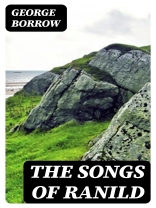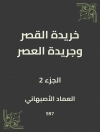In ‘The Songs of Ranild, ‘ George Borrow delves into the rich tapestry of Cornish folklore, presenting a collection of lyrical narratives that intertwine myth, history, and emotion. Borrow’s style is characterized by its romanticism and vivid imagery, reflecting the beauty and complexity of the natural landscape as well as the human experience. The work resonates with themes of longing and cultural heritage, echoing the Victorian fascination with the pastoral and the primitive, while simultaneously showcasing Borrow’s affinity for the supernatural elements inherent in folk traditions. George Borrow was a prolific writer and philologist, deeply engaged with the cultures he encountered during his travels throughout England and Wales. His interest in folk customs and traditions, combined with his mastery of language, propelled him to write this collection. Influenced by his personal encounters with Cornish society and his earlier works that explore the intersections of language and culture, Borrow’s creative journey is a testament to his belief in the power of storytelling to transcend local boundaries. For readers fascinated by folklore, linguistics, and the poetic exploration of human experiences, ‘The Songs of Ranild’ is an essential addition to any literary collection. It invites reflection on the mystique of tradition and the enduring power of song, making it a profound experience for those seeking to understand the cultural nuances of the British landscape.
लेखक के बारे में
George Borrow (1803–1881) was a prolific English author and philologist known for his works on the Romani people and his travel-based literature. Born in East Dereham, Norfolk, Borrow developed an early interest in languages and literature. His writing career incorporated his love for linguistics and a penchant for adventure, seen in his most famous works such as ‘The Bible in Spain’ (1843) and ‘Lavengro’ (1851). Though ‘The Songs of Ranild’ is less known, it reflects Borrow’s versatile literary style that often blends narrative with elements of folklore, song, and poetry. Borrow’s literary style oscillates between picaresque tales and autobiographical elements, often woven together with the thread of Romany culture and language, both of which fascinated him greatly. His oeuvre encapsulates a vast exploration of 19th-century life, from the underbelly of London’s streets to the pastoral landscapes of rural England, and beyond to foreign nations. George Borrow’s ethnographic interests and adventurous spirit mark him as a distinctive figure among his contemporary travel writers and ethnographers, paving the way for an intimate portrayal of the lives of itinerant communities. Today, his work garners interest from scholars of Romani studies and enthusiasts of Victorian literature, admiring Borrow’s linguistic skills and his contributions to the literary panorama of his time.












